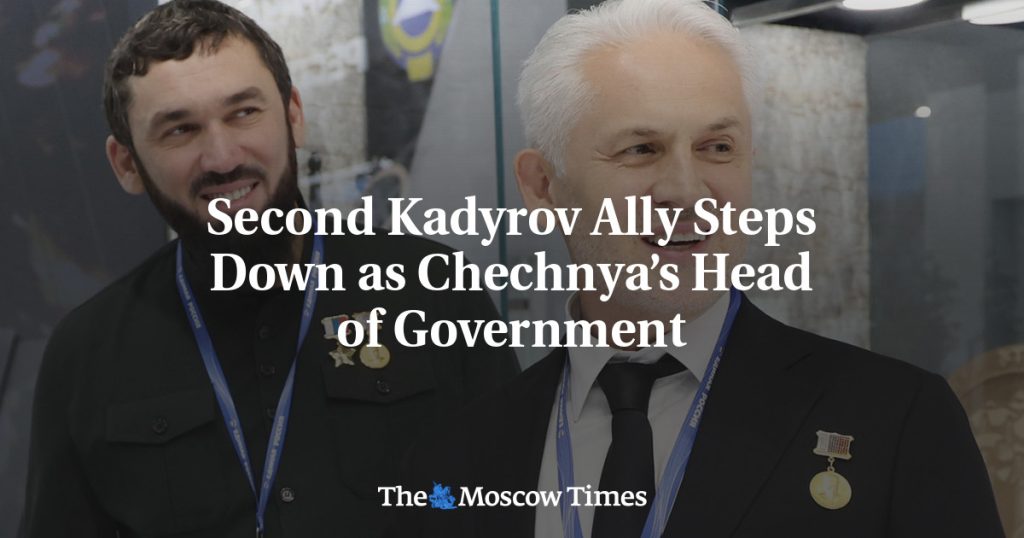Chechen leader Ramzan Kadyrov announced on Tuesday that the head of the North Caucasus region’s government, Muslim Khuchiyev, has resigned from his position. Khuchiyev, who was previously the mayor of the Chechen capital of Grozny, was appointed as the head of Chechnya’s government in 2018 and temporarily replaced Kadyrov when he underwent medical treatment between 2019 and 2020. There have been reports suggesting that Kadyrov has been living with a potentially fatal illness for over five years. Khuchiyev’s resignation comes shortly after Kadyrov ally Magomed Daudov stepped down as speaker of Chechnya’s legislative assembly. It has been announced that Isa Tumkhadzhiyev will now serve as the acting head of Chechnya’s government.
The United States sanctioned Khuchiyev in August over his alleged involvement in the forced transfer of Ukrainian children to Russia. This resignation adds to the recent wave of high-ranking regional officials stepping down, raising speculation about the reasons behind these departures. Kadyrov praised Khuchiyev in his announcement, expressing confidence that he will excel in his new position without specifying where he will be employed next. The political landscape in Chechnya appears to be shifting with these resignations, prompting observers to question the implications of these changes for the region and its leadership.
The resignation of Khuchiyev and Daudov, both close associates of Kadyrov, raises questions about the stability of the Chechen government and the reasons behind these departures. The replacement of prominent officials in quick succession suggests a period of transition and potential challenges for the leadership in Chechnya. The uncertainty surrounding Kadyrov’s health and the impact of his potential illness on the political dynamics in the region add another layer of complexity to the situation. The resignation of key figures in the Chechen government may signal internal power struggles or changes in political alliances that could significantly alter the balance of power in the region.
The sanctions imposed by the United States on Khuchiyev further complicate the political landscape in Chechnya and raise concerns about the implications of these actions on the region’s governance and relations with foreign powers. The departure of sanctioned officials may be seen as a response to external pressures, indicating a willingness to address international concerns and potentially improve diplomatic relations with the United States and other countries. The timing of Khuchiyev’s resignation following the imposition of sanctions suggests a strategic move to mitigate the impact of these measures on Chechen leadership and demonstrate a commitment to addressing allegations of misconduct.
Overall, the recent resignations in the Chechen government, including that of Muslim Khuchiyev and Magomed Daudov, suggest a period of change and uncertainty in the region. The implications of these departures for the stability of the Chechen leadership, the political landscape, and relations with foreign powers remain to be seen. The potential impact of Kadyrov’s health on the region’s governance and the response to international sanctions highlight the challenges facing the Chechen government. As new leaders take the helm in Chechnya, observers will be closely watching for signs of internal power struggles, shifts in policy direction, and the trajectory of the region under evolving leadership.


